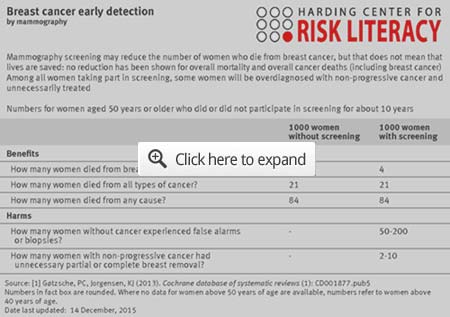The Cancer Surge
By Dr. Mercola
According to the Credit Suisse Research Institute’s 2013 study1 “Sugar: Consumption at a Crossroads,” as much as 40 percent of US healthcare expenditures are for diseases directly related to the overconsumption of sugar.
Incredibly, we spend more than $1 trillion each year fighting the damaging health effects of sugar, which runs the gamut from obesity and diabetes, to heart disease and cancer.
The fact that sugar and obesity are linked to an increased risk of cancer is now becoming well-recognized. According to a report2 on the global cancer burden, published in 2014, obesity is responsible for an estimated 500,000 cancer cases worldwide each year.
Nearly two-thirds of obesity-related cancers — which include colon, rectum, ovary, and womb cancers — occur in North America and Europe.3 A more recent British report estimates obesity may result in an additional 670,000 cancer cases in the UK alone over the next 20 years.
The same goes for breast cancer screening and colorectal cancer screening:
- 60 percent of women who undergo regular mammography screening for 10 years receive a false positive at some point, leading to unnecessary distress and treatment, which can have serious side effects. Studies have also shown that routine mammograms have no effect on death rates.
As noted by Reuters:21
“[T]hese tests avert just 1 breast cancer death for every 1,000 women screened. ‘There used to be ads saying if a woman hadn’t had a mammogram, she needed more than her breasts examined,’ Prasad said. ‘The fact that the medical profession promoted screening so strongly, when it was always a balancing act, when it was always a personal choice, is really shameful.’”
- A study22 looking at colorectal cancer screening found 128 cancer deaths among every 10,000 people who received screening, compared to 192 cancer deaths among every 10,000 individuals who didn’t get screened.
While there were fewer cancer deaths among those screened, this link completely disappeared when they looked at all-cause mortality. When death from all causes was included, there was no meaningful difference between the two groups.
It’s Time to Change the Discussion About Cancer Screening
According to the authors, in order to determine whether cancer screening truly saves lives, “statistically robust studies based on millions of people are needed.” This would be a costly venture, they admit, “but no more so than supporting mass population screening programs with unproven benefits.”
In an accompanying editorial,23 Gerd Gigerenzer, director of the Max Planck Institute for Human Development notes that:
“Rather than pouring resources into ‘megatrials’ with a small chance of detecting a minimal overall mortality reduction, at the additional cost of harming large numbers of patients, we should invest in transparent information in the first place. It is time to change communication about cancer screening from dodgy persuasion into something straightforward.”
To do so, she suggests patients should be given pamphlets with fact boxes that clearly present the available data, such as the Risk Literacy fact sheet for mammography below,24 which shows that while mammograms reduce cancer-specific mortality in 1 out of 1,000 women, this difference is not reflected in overall mortality.
And, that as many as 10 women out of 1,000 women screened will undergo unnecessary breast removal as a result of a false positive.
Presented with such data, patients would be better able to make a personal decision about whether or not screening in their particular instance might be worth the risk. She also notes that while some may benefit from screening, doctors should not overstate the value of the tests. In an email to Reuters, Gigerenzer says:
“The take-home message is after decades of research we have not found clear evidence that screening saves lives, but clear evidence that screening harms many.”
Cancer Prevention Begins with Your Lifestyle Choices
Cancer screening is portrayed as the best form of “prevention” you can get against various forms of cancer. But early diagnosis is not the same as prevention. And cancer screening that does more harm than good can hardly qualify as the best you can hope for … I believe the vast majority of all cancers could be prevented by strictly applying basic, common-sense healthy lifestyle strategies, which includes the following:
Sources and References
- 1 Credit-Suisse October 22, 2013
- 2 Lancet Oncology November 26, 2014 [Epub ahead of print]
- 3 The Times November 26, 2014
- 4 BBC News January 7, 2015
- 5 Dental Tribune September 17, 2015
- 6 Medicinenet.com, Why Does Obesity Causes Diabetes?
- 7 Cancer Research January 1, 2016: 76; 24
- 8 Here and Now January 6, 2016
- 9 U.S. Dietary Guidelines 2015-2020
- 10 NBC News January 7, 2016
- 11 The Atlantic January 6, 2016
- 12 AlterNet January 10, 2014
- 13 Washington Post July 1, 2015
- 14 EWG Farm Subsidies
- 15 Reuters January 6, 2016
- 16 BMJ 2016;352:h6704
- 17 Newsweek January 6, 2015
- 18 Healthline January 6, 2016
- 19 BMJ 2016;352:h6080
- 20 Newsweek January 6, 2016
- 21, 22 Reuters January 7, 2016
- 23, 24 BMJ 2016;352:h6967
- 25 Clinical Cancer Research October 15, 2005: 11; 7490
- 26 Dr. Brownstein – Holostic Familt Medicine
The post The Cancer Surge appeared first on LewRockwell.



Leave a Reply